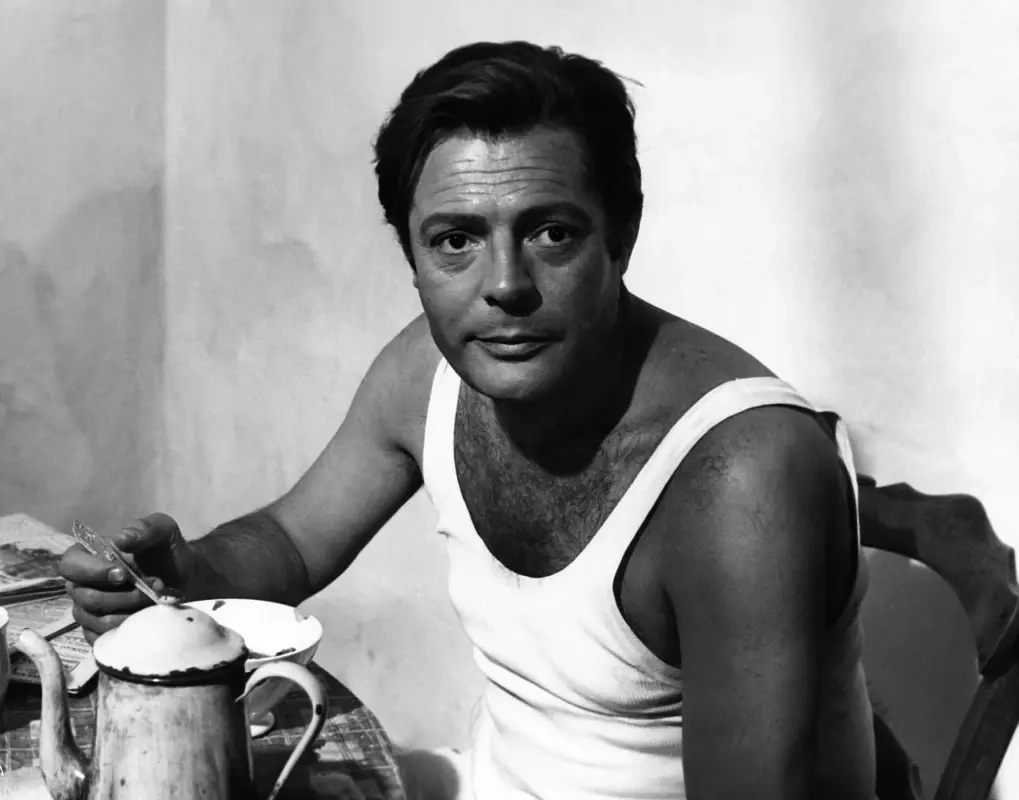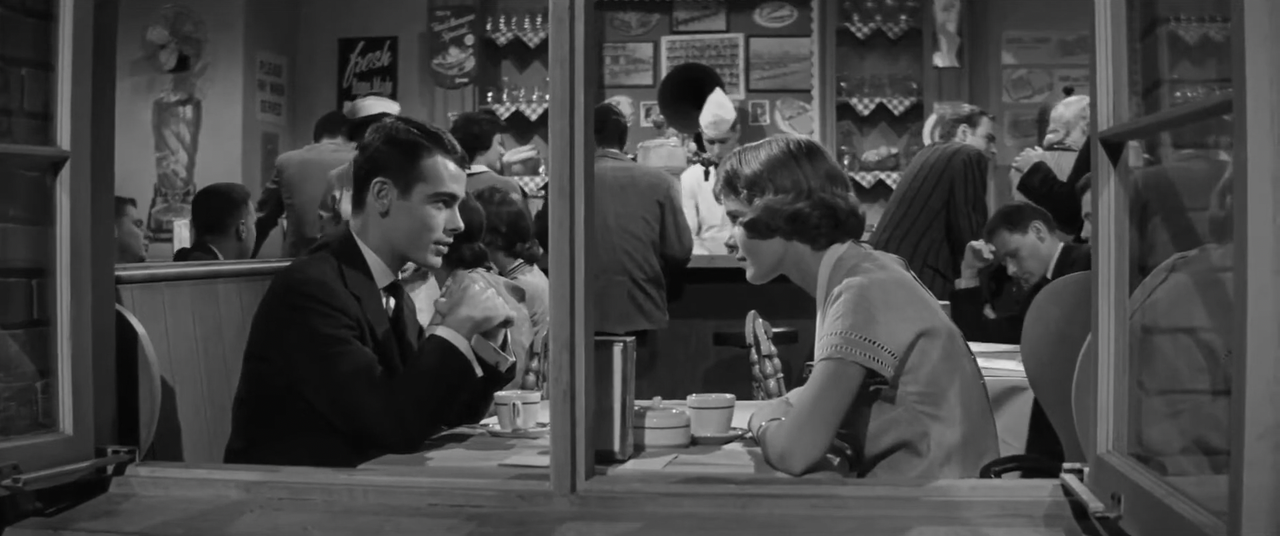Ekstase [Ecstasy] (Gustav Machatý, 1933)
Jul
8
International Skinny Dip Day

Eva (Hedy Lamarr), swimming nude in a lake. DPs: Hans Androschin, Gerhard Huttula & Jan Stallich.
Eva (Hedy Lamarr) hangs her clothes over her horse's back, then – cut through a wonderfully voyeuristic moment – goes swimming in a lake. The foal, still carrying Eva's outfit, wanders off to find a stallion.
Ekstase is full of not so subtle, beautifully framed innuendo. #Horses are a recurring theme and make me wonder if it inspired the mustangs sequence in John Huston's The Misfits (1961), another story of doomed passion.
Bookadaptation
“Jesus Christ has promised to forgive you 490 times, whatever you have done… because those were his words. But about the 491st time… He has given no words. None at all.”491 (Vilgot Sjöman, 1964)
Jul
7
Global Forgiveness Day

One of the juvenile delinquents carving a simple arithmetical calculation into a desk during the Reverend's lecture about forgiveness. DP: Gunnar Fischer.
Early 60s, Sweden. A social experiment. Six hopelessly criminal juveniles are packed in a guesthouse – cynically named Objectivity – and loosely supervised by social workers and a reverend. The public servants speak of a new lease on life, God's servant of how Jesus forgives; all speak on their own behalf. We follow the young men closely and sense their need to break out, to be young, to be out of that house. We learn that their world, in or out, is eternally equally irrelevant.
– Reverend Mild
Vilgot Sjöman's 491 is an extremely, bleak, aggressive, and hopeless depiction of youth in postwar Sweden. Forgiveness is a tool of power, a method of control. And as empty as a repetitive lecture.
Lo straniero [The Stranger] (Luchino Visconti, 1967)
Jul
3
soup

Arthur Meursault (Mastroianni) eating from a cracked bowl. DP: Giuseppe Rotunno.
“Say, mister. Will you stake a fellow American to a meal?”The Treasure of the Sierra Madre (John Huston, 1948)
Jun
30
campfire grub

Curtin (Tim Holt), Dobbs (Bogart), and Howard (Walter Huston) eating campfire grub. DP: Ted D. McCord.
– Dobbs
“I know what gold does to men's souls.”The Treasure of the Sierra Madre (John Huston, 1948)
Jun
29
National Handshake Day

Fred (Humphrey Bogart) and Curtin (Tim Holt) shake hands witnessed by gruff prospector Howard (Walter Huston). DP: Ted D. McCord.
Cheated out of their wages, broke Americans #Bogart and Holt are approached by a former prospector. There's #gold in the #SierraMadre mountains, he tells them.
– Howard
Seemingly character driven, Huston's The Treasure of the Sierra Madre is an adventure moved by a relentless #landscape, the urge to drift, and #greed.
“Europe, a Stutz Bearcat, the best restaurants. You fellas really have a hard life, don't you?”Compulsion (Richard Fleischer, 1959)
Jun
29
coffee

A squeaky young Stockwell and Varsi at a diner. We're looking in from the outside through an open window. The place is busy but she's all enthralled by his wit and intellect (and looks for sure). DP: William C. Mellor.
– Harold Horn, DA
– Why so grumpy?
– I'm starved! Dinner is always late!La main du diable [The Devil's Hand / Carnival of Sinners] (Maurice Tourneur, 1943)
Jun
27
dinner (late)

A disgruntled man in a hotel restaurant. DP: Armand Thirard.
Le trou [The Hole / The Night Watch] (Jacques Becker, 1960)
Jun
25
care package

Butchering a care package – butter, sausage and other joys of life – for contraband. DP: Ghislain Cloquet.
“All these fancy electronics, they're all right in their place, but not for anything practical.”Le procès [The Trial] (Orson Welles, 1962)
Jun
23
National Typewriter Day

Josef K. (Anthony Perkins) crossing an enormous open office space. The endless room is filled with clerks, identical desks, telephones, and typewriters. DP: Edmond Richard.
Office worker Josef K. is brought to trial and at no point told what he is accused of, if anything. Orson Welles' Le procès is an adaptation of Franz Kafka's unfinished 1914/15 novel Der Prozess. The manuscript, guarded from Kafka by his friend #MaxBrod in an attempt to keep the self-doubting author from destroying his work, was against K's wishes posthumously (re)assembled by Brod without the latter knowing the intended sequence of the loose pages nor what chapters were finished.
– Uncle Max
The story holds up in its vagueness thanks to the quirks of #Kafka's Brotberuf; Franz K. was a trained lawyer, working as an insurance agent in an impossible artifice world of reports and precise wording. Within its extended logic, a man can get perplexedly lost, either within the walls of his #office or one's bed.
“Welcome home, Ethan.”The Searchers (John Ford, 1956)
Jun
21
National Arizona Day

Ethan Edwards (John Wayne) facing the endless desert. DP: Winton C. Hoch.